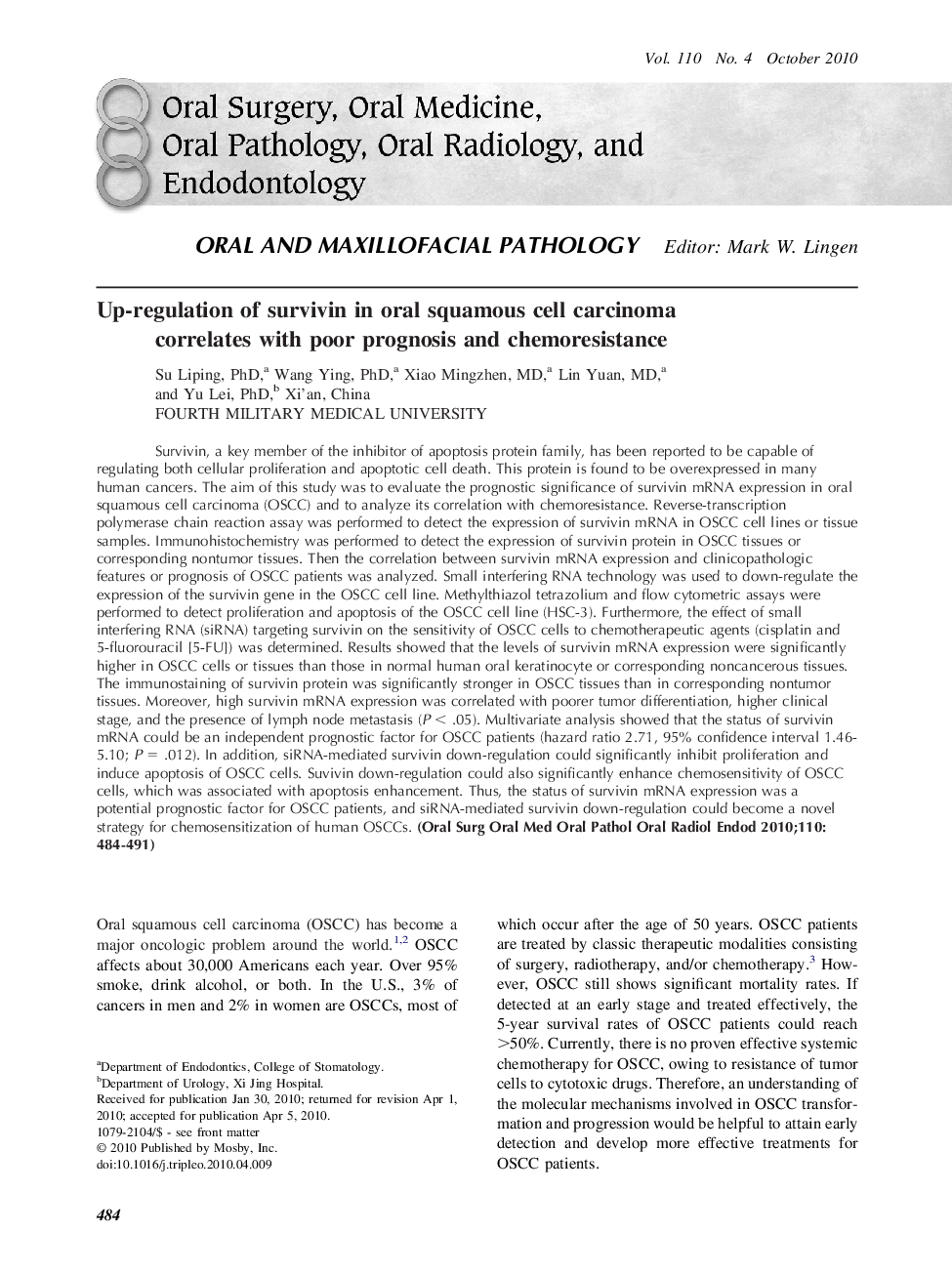| Article ID | Journal | Published Year | Pages | File Type |
|---|---|---|---|---|
| 3167317 | Oral Surgery, Oral Medicine, Oral Pathology, Oral Radiology, and Endodontology | 2010 | 8 Pages |
Survivin, a key member of the inhibitor of apoptosis protein family, has been reported to be capable of regulating both cellular proliferation and apoptotic cell death. This protein is found to be overexpressed in many human cancers. The aim of this study was to evaluate the prognostic significance of survivin mRNA expression in oral squamous cell carcinoma (OSCC) and to analyze its correlation with chemoresistance. Reverse-transcription polymerase chain reaction assay was performed to detect the expression of survivin mRNA in OSCC cell lines or tissue samples. Immunohistochemistry was performed to detect the expression of survivin protein in OSCC tissues or corresponding nontumor tissues. Then the correlation between survivin mRNA expression and clinicopathologic features or prognosis of OSCC patients was analyzed. Small interfering RNA technology was used to down-regulate the expression of the survivin gene in the OSCC cell line. Methylthiazol tetrazolium and flow cytometric assays were performed to detect proliferation and apoptosis of the OSCC cell line (HSC-3). Furthermore, the effect of small interfering RNA (siRNA) targeting survivin on the sensitivity of OSCC cells to chemotherapeutic agents (cisplatin and 5-fluorouracil [5-FU]) was determined. Results showed that the levels of survivin mRNA expression were significantly higher in OSCC cells or tissues than those in normal human oral keratinocyte or corresponding noncancerous tissues. The immunostaining of survivin protein was significantly stronger in OSCC tissues than in corresponding nontumor tissues. Moreover, high survivin mRNA expression was correlated with poorer tumor differentiation, higher clinical stage, and the presence of lymph node metastasis (P < .05). Multivariate analysis showed that the status of survivin mRNA could be an independent prognostic factor for OSCC patients (hazard ratio 2.71, 95% confidence interval 1.46-5.10; P = .012). In addition, siRNA-mediated survivin down-regulation could significantly inhibit proliferation and induce apoptosis of OSCC cells. Suvivin down-regulation could also significantly enhance chemosensitivity of OSCC cells, which was associated with apoptosis enhancement. Thus, the status of survivin mRNA expression was a potential prognostic factor for OSCC patients, and siRNA-mediated survivin down-regulation could become a novel strategy for chemosensitization of human OSCCs.
